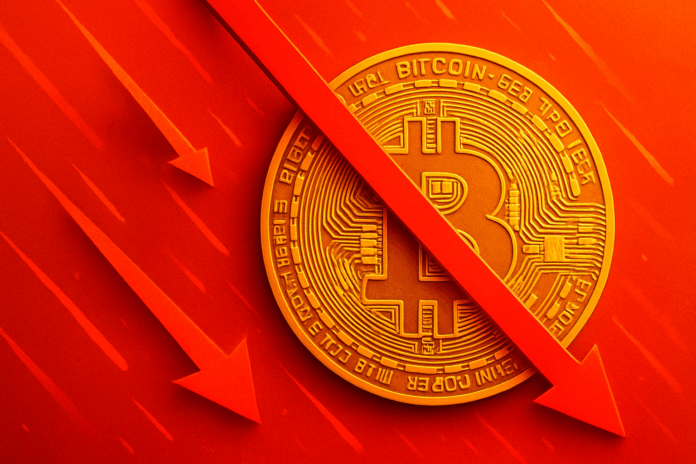Introduction: The Hypothetical That Keeps Crypto Nerds Up at Night
Picture this: you wake up one morning, glance at your phone—and Bitcoin is zero dollars. What? The world’s most famous digital asset, born in 2009, wiped out overnight? Sounds like dystopian fiction—but what if it actually happened? What would crumble first, and what, shockingly, could spring back?
This piece explores that unlikely scenario. We’ll unpack why it could happen, what it’d mean for investors, tech, regulation, broader markets—and maybe, how Bitcoin wouldn’t entirely disappear.
1. ❌ How Could Bitcoin Even Hit Zero?
1.1. Regulatory Nukes
Governments have a powerful lever: criminalize exchanges, ban mining, refuse banking access. China already did this in 2021, triggering a ~30% plunge. A global coalition of major economies could make Bitcoin useless overnight.
1.2. Energy Crisis Shutdown
Bitcoin mining guzzles serious energy—one transaction can eat up ~850 kWh nasdaq.com. In a world facing extreme energy shortages or carbon constraints, that kind of power consumption could be outlawed or simply impossible.
1.3. Confidence Collapse
Bitcoin lacks intrinsic cash flow—its value depends on belief. Lose confidence (via scandal, manipulation, tech failure), and it could lose all value in a cascading meltdown.
2. Who Gets Flattened if Bitcoin Goes Poof?
2.1. Investors: Gone.
If Bitcoin hits zero, holders—retail or institutional—get wiped. No sells, no redemptions: your stash is digital dust.
2.2. Miners and Infrastructure: Ice‑cold.
Miners depend on Bitcoin’s price to cover operational costs. If it goes under mining cost—or zero—they shut down. And if all miners vanish, the network grinds to a halt .
2.3. Crypto Firms: Collateral Damage.
Exchanges, wallets, custodian services—nearly all crypto‑adjacent firms would collapse from a Bitcoin wipeout. Expect bankruptcies, layoffs, and lawsuits galore .
3. Ripples Beyond Bitcoin?
3.1. Crypto Contagion
Bitcoin often leads the charge: when it crashes, altcoins fall. A wipeout of BTC would devastate the entire crypto market .
3.2. Investor Panic Mode
BTC is now woven into traditional finance: ETFs, futures, bonds (hello MicroStrategy) . A collapse could spark broader volatility, especially in fintech circles.
3.3. Regulators & Governments
Expect governments to clamp down—tighter rules, KYC enforcement, restrictions on stablecoins, or outright bans on wallet providers.
4. But Wait… Bitcoin Can’t Fully Die—Here’s Why
4.1. The Global Breaking Point
As one Redditor quipped:
“Once Bitcoin becomes too big to ban, too integrated to ignore… the chance… shrinks to practically nothing.” reddit.comreddit.com
If Bitcoin becomes vital infrastructure—think digital gold, reserve asset—full erasure becomes practically impossible.
4.2. Decentralization as Resilience
Bitcoin isn’t controlled by one entity. Even if all miners vanish, nodes (which store a ledger copy) and open‑source code persist. Someone, somewhere, can revive it.
4.3. Analogies from Gold and Stone Money
Gold has value despite limited intrinsic use; in Micronesia, giant stone coins worked as money purely through collective trust chicagobooth.edu. Bitcoin may be digital, but trust is its backbone.
5. The Dawn After Zero?
Letting Bitcoin crash completely wouldn’t necessarily kill the idea—it might spark a reboot.
5.1. Forked Rebirth?
Bitcoin is open-source. Even if current infrastructure disintegrates, a community could resurrect it via a fork—though such a revival would struggle without network effect.
5.2. Policy Reset
A zero event could catalyze a global rethink: central bank digital currencies, cleaner consensus protocols, regulated stablecoins. Crypto tech might evolve healthier from the ashes.
5.3. Psychology Shift
Much like dot‑com hubris turned into valuable platforms, crypto could rebound—but only if new, stable applications emerge.
6. But… How Likely Is “Zero”?
Extremely low.
-
Analysts say bankruptcy requires wiping out all demand, trust, energy, infrastructure .
-
Nobel laureate Eugene Fama even gave Bitcoin a near‑100% chance of going worthless in a decade—but that’s bearish theory, not fact.
-
Many experts say Bitcoin hitting zero is like time travel: possible in theory, but practically remote.
7. So—Why Even Talk About Zero?
Considering a full collapse helps sharpen our view:
-
Risk Awareness: Crypto can go to zero. Treat it like junk bonds or startups—not guaranteed gold.
-
Policy Sandbox: It highlights the need for regulation, consumer protection, contingency planning.
-
Tech Evolution: A collapse might clear space for better crypto protocols—think Ethereum 2.0, Bitcoin Layer‑2, greener chains.
8. What It Means for You
Use Caution:
Don’t invest more than you’re willing to lose. Diversify.
Choose Wisely:
Invest via regulated channels (ETFs, licensed exchanges). Ignore offshore dodgy deals.
Watch the Infrastructure:
Track mining health, node counts, regulatory sentiment, institutional flows—all indicators of resilience or fragility.
Conclusion: Zero Isn’t The End—It’s A Lesson
“If Bitcoin goes to zero,” you lose investment—but the world keeps spinning. Regulators adjust. Crypto tech evolves. Maybe, a phoenix rises from the ashes.
The harsh truth? Bitcoin could hit zero in a world with perfect storm: bans, energy collapse, lost belief. But human systems don’t collapse so neatly. Trust, tech, decentralization—they all act as safety valves. Bitcoin is built to fail in one way, but potentially uncannily built to recover.
So yes—it could go to zero. But chances are small, and if it ever did—it wouldn’t truly vanish from the global ledger of ideas.



